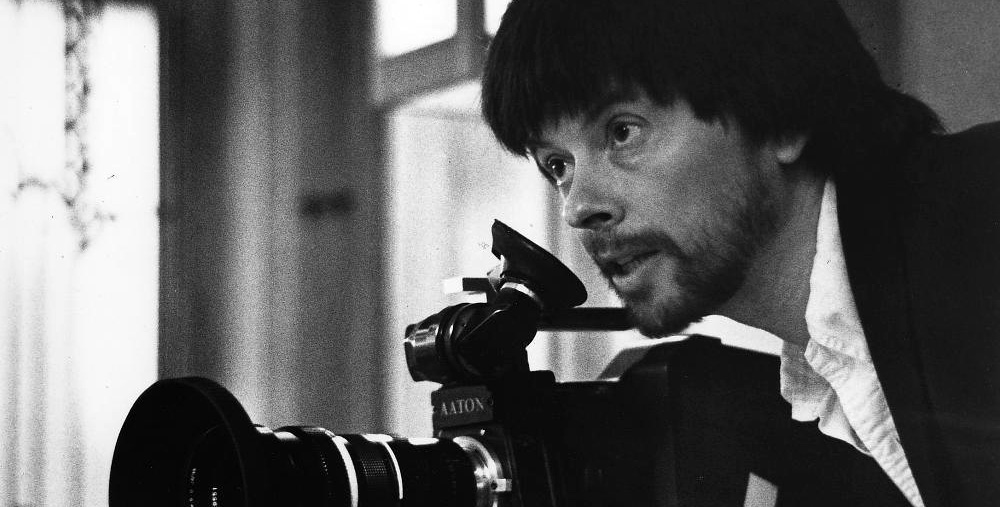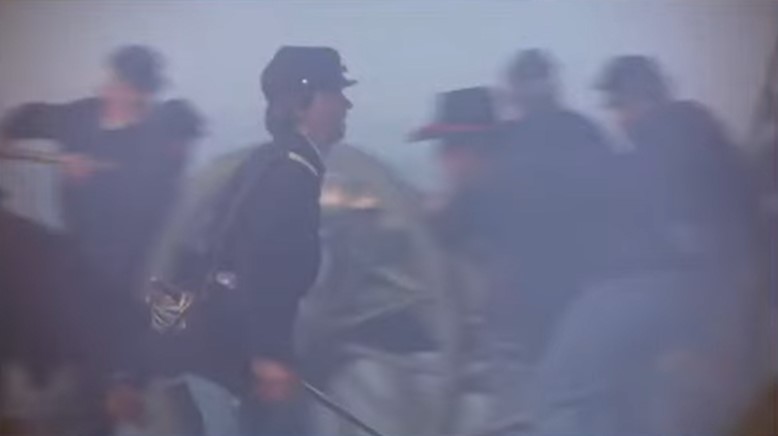
Ken Burns and Gettysburg: History Through the Lens of Time
February 6, 2023A longtime supporter and honored guest to the town of Gettysburg, the vast contributions of celebrated American filmmaker Ken Burns have heavily shaped the cultural and historical connotations of the town and its famous battlefield.
Ken Burns is internationally known for his amazing body of work creating documentary films and television series that chronicle American history and culture. Over the past four decades, Burns and his collaborative partners have created a series of accurate and emotionally resonant historical documentaries, including The Civil War (1990), Baseball (1994), Jazz (2001), The War (2007), The National Parks: America’s Best Idea (2009), Prohibition (2011), The Roosevelts (2014), The Vietnam War (2017), and Country Music (2019).
During his prolific 40-year career, Burns has both produced and directed some of the most widely acclaimed historical documentaries ever made, covering controversial topics such as war, racism, government, and the power of cultural touchstones. The films of Ken Burns have collectively won 16 Emmy Awards, and have earned two Oscar nominations.
His incredible archive of influential documentary films and series serves both as an ever-expanding exploration of our nation’s historical record, as well as an inspiration and invitation for viewers to discover things they never knew about people and events that molded our history.
The Civil War
The Ken Burns documentary “The Civil War” premiered in September of 1990 as a nine-part, 11-hour series. It rapidly became one of PBS’ most widely viewed educational programs, with an estimated viewership topping 40 million. In the period that followed, The Civil War became a legitimate cultural phenomenon, inspiring an entire generation of Americans to examine the events of the American Civil War from a fresh new viewpoint.
Burns, in his mid-30s at the time, had spent years refining the specific filmmaking style that would famously become his style: the use of archival photographs and strategic live modern cinematography, coupled with period music, overriding narration, and numerous first-person accounts edited into a seamless whole. This earned him immediate recognition as a brilliant and insightful documentarian, and that unique confluence of stylistic methodologies combined to make The Civil War such effective and compelling viewing that it was soon adopted by other documentarians, a process that came to be informally known as “The Ken Burns Effect.”
Importantly, through his use of primary sources and by allowing participants to tell their own stories through journal entries and letters, Burns’ series provided a comprehensive and surprisingly intimate glimpse into the events of another time, a view that was instrumental in shaping how modern Americans perceive the events and meaning of the war. This was to be an important ongoing legacy of the work, bringing to bear and hammering home the importance of actual historical issues like slavery to the heart of Civil War scholarship, while countering much of the hyper-romantic mythology that had arisen around historical events in later decades.
The Gettysburg Connection
Ken Burns has long maintained an enduring bond with Gettysburg and its historical battlefield, dating back to his keen interest in the famous battle, which greatly inspired and influenced The Civil War in 1990. Throughout the mid-1980s, he and his brother Ric, along with their colleagues, would spend a considerable amount of time in the Gettysburg area throughout the multi-year project and would return many times in the years after.
After the series successfully debuted in 1990, Burns and the series won the inaugural Gilder Lehrman Lincoln Prize, awarded in 1991 at Gettysburg College. Burns was also in Gettysburg and involved during the filming of the 1993 Turner Films production “Gettysburg.” The success and enduring popularity of Burns’ lauded documentary The Civil War are even credited with enabling the production of that motion picture, which was itself an acclaimed film adaptation of Michael Shaara’s novel “The Killer Angels” that was shot on location in and around the Gettysburg battlefield in the summer of 1992. Burns, who has himself referenced “The Killer Angels” as a powerful inspiration behind his own groundbreaking documentary film, even appeared in a cameo role in the 1992 film drama.

In 1994, he received an honorary degree from Gettysburg College, and in 2008 he returned once more to Gettysburg to speak at Soldiers’ National Cemetery on the 145th anniversary of the Gettysburg Address.
Burns has maintained his involvement with the Gettysburg community through several ongoing connections and projects in the area, including the production of a documentary dealing with Lincoln’s famed Gettysburg Address. In 2020, he helped to launch Gettysburg: Beyond the Battle, the $10 million capital campaign to build a new home for the Adams County Historical Society.
It’s no surprise that Burns is coming back to the Gettysburg area this month to take part in a brand new, upcoming film festival devoted to his works. And where else would it be hosted, if not in Gettysburg?
The ongoing legacy of Ken Burns’ work stands as an enduring monument to the power of our collective cultural memory, and it continues to inform our understanding of historical events and illustrate the powerful influence our history—well told— can exert over our daily lives.
“Few individuals throughout our nation’s history have had a more profound impact in shaping American discourse than Ken Burns,” says Gettysburg University President Bob Iuliano. “His timeless works challenge us to see our country from new perspectives and encourage us to engage in the defining issues of our time.”
“Gettysburg is both a place of remembering and imagining,” said Burns last April. “It is of course a burial ground for those who fought there—North and South—but it is also where President Lincoln imagined a new country, one where the values we associate with our country’s founding were given new meaning. Our work tries to present the past in all of its complexity, collecting individual stories into larger narratives.”
Film Festival 2023
Gettysburg College will host the first-ever film festival dedicated solely to the work of award-winning documentarian Ken Burns on Feb. 10–12, 2023, at the College’s Majestic Theater.
Ken Burns will be in active attendance at the new festival, produced by Gettysburg College and the Majestic Theater in cooperation with Florentine Films.
More than merely a career retrospective, festival goers will be able to engage with Burns, his collaborators, historians, and students in consequential conversations about the simple question Burns has explored in all his films: Who Are We?
Who Are We? A Festival Celebrating the Films of Ken Burns
Visit Gettysburg in Person
Plan your next excursion with us! Our bus tours of the historic Gettysburg Battlefield are active and ready to show you the sites of the historical battleground. Reservations can be made by calling our toll-free number at 877-680-8687. You can also purchase bus tour tickets online. Tours depart from the Gettysburg Tour Center located at 778 Baltimore Street across from the National Cemetery.